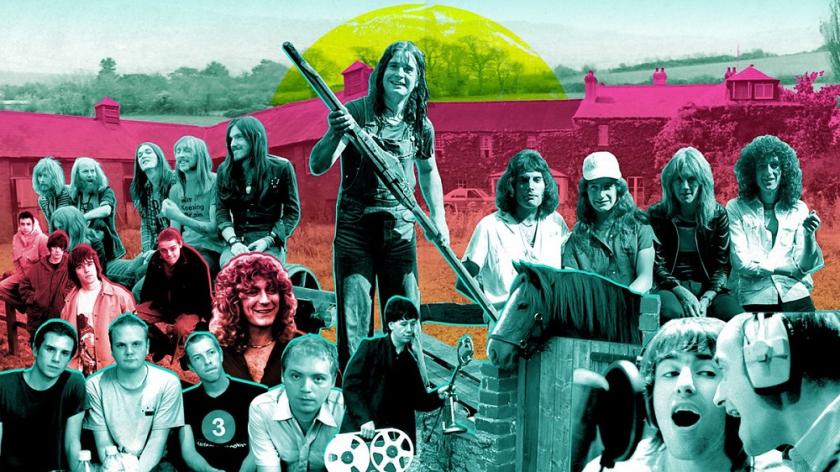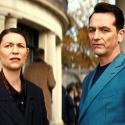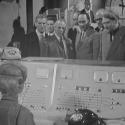Farms have played quite a large part in the history of rock, not just in terms of those wealthy stars who retire to one, tending sheep and making cheese. The festivals at Woodstock, the Isle of Wight and Glastonbury all took place on farms but before everyone turned on, tuned in and dropped out in the mud and the sun, two farmers in a village on the Welsh borders had set up the world’s first residential recording studio.
Rockfield: The Studio on the Farm, which premiered on BBC Four on Saturday evening, told the remarkable story of Britain’s own honky chateau, as Elton John named the album he recorded at Château d'Hérouville, which opened in 1970, seven years after Rockfield.
How appropriate that the Ward family chose Rockfield, a pre-Norman settlement on the river Monnow, near Monmouth, to buy their farm and raise pigs and cattle. It was also a stud for shire horses – most rockers like to think of themselves as studs. It never made any money, sons Kingsley and Charles reported in a rare interview for the documentary. The brothers were brought up playing Chopin but were inevitably blown away by rock ‘n’ roll at Abergavenny Grammar: for Kingsley it was Elvis, for Charles Bill Haley. Soon they were three-chord wonders with a group, buying a tape recorder and laying down their first tracks in the front room. Emboldened, they took the tape – and the machine on which it had been recorded – to EMI in Hayes, Middlesex. A kindly security man redirected them to Manchester Square, where George Martin listened politely but didn’t offer a contract.
The visit inspired the brothers to convert the farmhouse attic into a recording studio, using bags from pigs’ feed as sound insulation and buying mics, another tape recorder, and a mixer. For £5 or so, local bands could come and record an acetate. By 1963, they were rolling. Two years later, they could offer bands accommodation. In 1968-9, the old stables were converted into the Coach House Studio, state-of-the-art eight-track equipment installed - £50,000-worth of hardware. In 1973 came the Quadrangle Studio, with its natural echo chambers. The Wards never looked back. The 1980s dance craze and the ‘90s recession were tricky but Rockfield was saved by The Stone Roses. Lisa Ward, Studio Manager – who was answering the phones aged five - recalled: “I think they booked in, officially, for a couple of weeks. But they stayed. I think it was thirteen months in the end that they were here. And that saved us. The Stone Roses saved Rockfield.”
Birmingham boy Ozzie Osbourne was amazed to see farm animals in the flesh. “Just to go to Monmouth was an adventure”, said Ozzie, who didn’t realise Black Sabbath was "inventing" heavy metal – “we were just very loud for the time”. Hawkwind’s Dave Brock remembered the bales of hay and straw, playing by the river and lighting fires, Lemmy worried where to hide his “stash”. The local police turned a blind eye to whatever exotica bands brought in, though they did arrest Kingsley one night as he was cleaning up. He spent a night in the cells.
Rockfield is one hell of a story. Ace’s “How Long” gave the Studio its first number one, but then came “Bohemian Rhapsody”, known first as “Freddie’s Theme” – Kingsley remembered Brian May and Roger Taylor playing frisbee while Mercury busied himself at the keyboards. After Led Zep's demise, Robert Plant came, finding renewal after John Bonham’s death in this “great arboreal green and pleasant land”. Liam Gallagher hijacked a combine harvester but was more interested in the fact that “there were lots of pubs to go to”, the recording of Morning Glory done as expeditiously as possible, the better to maximise drinking time. “You didn’t leave the studio until you had your album finished. It was like the Big Brother House but with tunes,” he reminisced, setting a new record for use of the F-word on prime time.
They all came: David Cassidy, Joan Armatrading, Simple Minds, Iggy Pop, David Bowie (carrying “a hunk of cheese and a can of Heineken”), The Pogues, The Boo Radleys, The Proclaimers, Eliza Carthy, and others too numerous to mention. For Coldplay it was “a make or break session”, explained Chris Martin. “It was a musical Hogwarts… we were sent away to figure it out.”
As Lisa put it, “nature is a great leveller. It centres you.”
It was a fascinating programme but the real stars were the Ward family, cooking, book-keeping, milking cows and running an extraordinary family show. What Rockfield: The Studio on the Farm lacked, however, was the background on the how of it all. Kingsley and Charles are clearly talented and visionary entrepreneurs but building the perfect studio takes a very particular set of skills and it would have been fascinating to have heard a little more about how they did it.
More TV reviews on theartsdesk
Liz Thomson's website















Add comment